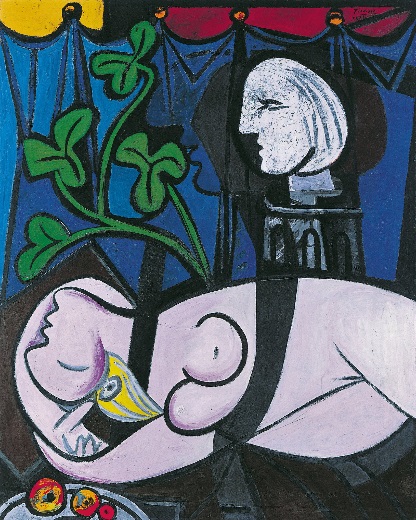Editor's Page
Was Jesus God? by "Z"
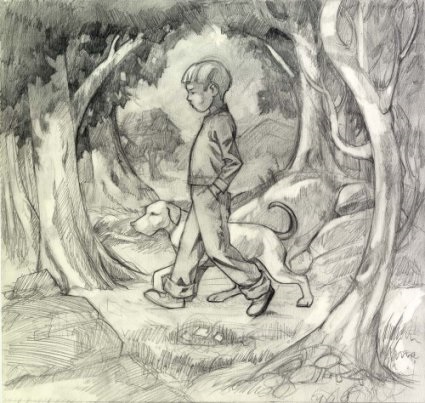
A while ago I published a piece here in SouthernCrossReview called We are the Lucky Ones, (by “Z”). It described an essay, or the manuscript of one, that had been found by my son and his dog in an old lunch-pail in the wooded part of our property here in the valley of Traslasierra in the Province of Córdoba. I didn't expect that something else would ever be found here, that finding the lunch-pail was no more than a unique stroke of luck. But fate is fond of playing tricks. Just last week my son and his dog were investigating the flora and fauna (insects) in a dry riverbed at the far end of the wood, actually outside of our property because the riverbed acts as the natural border, no-man's-land so to speak. There, thanks to the dog's olfactory talent, they found an old rucksack caught under some fallen branches... Continue reading
Current Events
God wills it!
The War on Terror as the Launching of an American Crusade by James Carroll
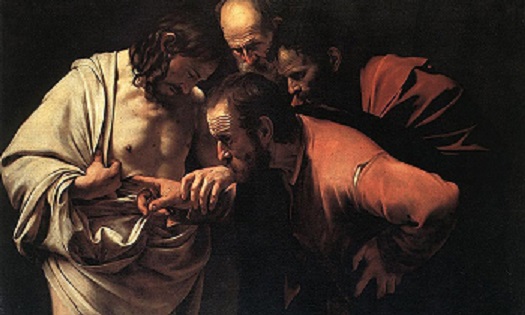
America may be sinking ever deeper into the moral morass of the Trump era, but if you think the malevolence of this period began with him, think again. The moment I still dwell on, the moment I believe ignited the vast public disorder that is now our all-American world, has been almost completely forgotten here. And little wonder. It was no more than a casually tossed-off cliché, a passing historical reference whose implications and consequences meant nothing to the speaker. "This crusade," said President George W. Bush just days after the 9/11 attacks, "this war on terrorism... Continue reading
Trump’s Recycling Program - War Crimes and War Criminals, Old and (Potentially) New By Rebecca Gordon
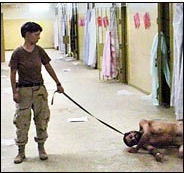
A barely noticed anniversary slid by on March 20th. It’s been 15 years since the United States committed the greatest war crime of the twenty-first century: the unprovoked, aggressive invasion of Iraq. The New York Times, which didn’t exactly cover itself in glory in the run-up to that invasion, recently ran an op-ed by an Iraqi novelist living in the United States entitled “Fifteen Years Ago, America Destroyed My Country,” but that was about it. The Washington Post, another publication that (despite the recent portrayal of its Vietnam-era heroism in the movie The Post) repeatedly editorialized in favor of the invasion, marked the anniversary with a story about the war’s “murky” body count. Its piece concluded that at least 600,000 people died in the decade and a half of war, civil war, and chaos that followed -- roughly the population of Washington, D.C.
Continue reading
Features
Meeting Thomas Mann by Susan Sontag
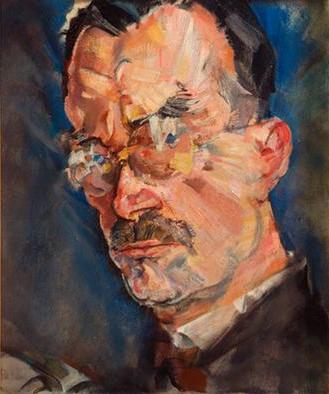
Reading and listening to music: the triumphs of being not myself. That nearly everything I admired was produced by people who were dead (or very old) or from elsewhere, ideally Europe, seemed inevitable to me. I accumulated gods. What Stravinsky was for music Thomas Mann became for literature. At my Aladdin's cave, at the Pickwick, on November 11, 1947 - taking the book down from the shelf just now, I find the date written on the flyleaf in the italic script I was then practicing - I bought The Magic Mountain. I began it that night, and for the first few nights had trouble breathing as I read. For this was not just another book I would love but a transforming book, a source of discoveries and recognitions. All of Europe fell into my head - though on condition that I start mourning for it. And tuberculosis, the faintly shameful disease (so my mother had intimated) of which my hard-to-imagine real father had died so long ago and exotically elsewhere, but which seemed, once we moved to Tucson, to be a commonplace misfortune - tuberculosis was revealed as the very epitome of pathetic and spiritual interest! Continue reading
Fiction
Prospect Park - a mystery play (scenes 5 and 6 of seven scenes) by Frank Thomas Smith
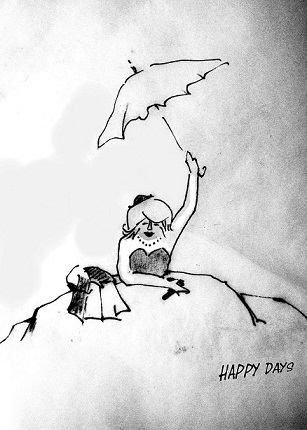
The scene is set by the actors in dim light. They are unhurried: four tables, one left, one right, one upstage center, one downstage center, forming a large rectangle, tilted so the characters' faces are visible to the audience. The Chairman of Board, C.B., stands before the upstage tables. KENNETH stands opposite him, MARGO is on his left, JOHN is on his right.
C.B.: Ms Ackhorn is sick today, so someone else will have to take the minutes.
JOHN: She's always sick on Mondays.
MARGO: English secretaries are always sick on Mondays. It has something to do with their National Health Plan. She once told me that the people in Northern Ireland don't want to separate from Britain because they'd lose their health insurance.
JOHN: Maybe we should revert to colonial status. I wouldn't mind working four days a week and have free health insurance.
Continue reading
Love in the Life of Spies (Chapter 5, The First Encounter) by Frank Thomas Smith
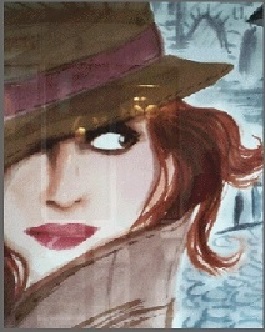
That night I went to the Gilded Cage with a purpose and was dressed accordingly: blue sports jacket, slacks, loafers without socks, white shirt open to the third button. I arrived early and found a stool at the semi-circular bar, put a fiver on the bar for effect, ordered a Millers High Life, lit a cigarette and looked around. The bar-stools were almost all occupied - by men. Soon they'd be three deep, it being Friday night. The piano was set back in an alcove to the left-rear of the bar. It also had bar-stools around it so you could drink there and look at the player with one elbow on the piano. Two young couples were perched on the stools, the men in suits and ties and the giggly women showing a lot of leg. The men were probably asshole officers from Fort Ord, I figured. The piano player was playing As Time Goes By...
Continue reading
Miryam - Part Eight by Luise Rinser
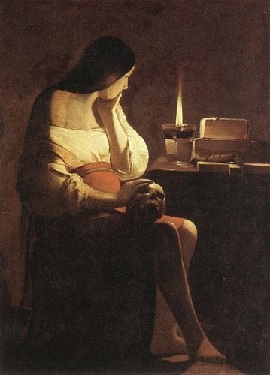
A beggar sat at the city's gate. He was blind. I said: Yehuda, give him something.
But Yeshua held us back: Patchwork!
The he asked the beggar, whose hand was stretched out to him: How long have you been blind, friend?
Since birth. Why do you ask?
Yeshua pulled his eyelids up and turned his face to the sun.
He's really blind, Yeshua said.
Of course I'm blind. Are you a physician?
I am one who can heal.
I pulled Yeshua's arm: Rabbi, no, not here on this hot ground! Nothing that looks like a miracle, I beg of you.
He shook off my hand: Don't you want me to help where I can?
He said to the blind man: Keep still. I'm going to rub something on your eyes, it doesn't hurt. Do you want me to cure you? Do you believe that I can?
Continue reading
Daddies by Frank Thomas Smith

"Balls," said the queen, "if I had them I'd be king."
And the king laughed, because he had two.
Father and foster son looked at the doughnut display and made their selections, Kenneth powdered sugar and Carlos chocolate. They found a place at the counter that wasn't in a direct line with the blast of the air conditioning blowers, where Kenneth ordered coffee for himself and a Pepsi for the boy. Carlos was shorter than his foster father, but had broader shoulders that tapered to a narrow waist, whereas that part of Kenneth's anatomy had recently become more expansive. Carlos's skin was naturally caramel-colored and the brief stay in Puerto Rico had made it a shade darker. He tried to keep his strong black hair slicked back with gel, but swimming in the ocean had released the curls that now cupped his head. Continue Reading
Children's Corner
Juancito Hummingbird by Frank Thomas Smith

Juancito (which means Johnny in Spanish) was more proud of his hair than anything else. Every time his mother wanted to take him to the barber he protested so much that she finally gave in and Juancito let his hair grow till it reached almost to his waist. It was blond, curly and shiny y Juancito sometimes let it fall down his back, and other times he tied it back with a rubber-band. Even the girls envied him.
One day something very strange happened: his hair began to fall out. “Hey, Juancito,” a friend said, “what happened to your hair? Soon you’ll look like Michael Jordan.”
But Juancito didn’t want to look like Michael Jordan.
Continue reading.
Juancito Colibrí
Lo que más orgullo le daba a Juancito era su pelo. Protestaba tanto cada vez que su mamá quería llevarlo al peluquero, que ella finalmente se dio por vencida, y Juancito se dejó crecer el pelo casi hasta a la cintura. Era un pelo rubio, rizado y brillante, y Juancito a veces se lo dejaba suelto sobre la espalda y, otras veces, se lo ataba atrás con una banda elástica. Hasta las niñas se lo envidiaban.
Un día ocurrió algo extraordinario que lo llenó de horror: el pelo se le empezó a caer. Un compañero del colegio le dijo en broma: –Eh, Juancito, ¿qué le pasa a tu pelo? Pronto te vas a parecer a Michael Jordan.
Pero Juancito no quería parecerse a Michael Jordan. Seguir leyendo
Antroposophy
Bio-dynamic Agriculture Course - Lecture Six plus a Question and Answer session by Rudolf Steiner
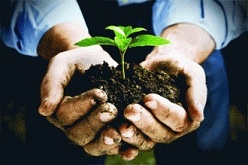
The
Nature of weeds, animal plagues and the so-called plant diseases
before the tribunal of nature
In the lectures that are to follow, I shall base myself to a great extent on what you have heard me say concerning plant growth and also animal forms. We shall have to attempt to put into aphoristic form some of the spiritual scientific concepts concerning the enemies of agriculture, animal and vegetable, and the diseases of plants. These matters can only be studied in concrete cases, they must be dealt with specifically, for there is little that can be said in a general way. Continue reading
The Fifth Gospel - Lecture 1 of 7 lectures by Rudolf Steiner

The theme I intend to speak about seems to me to be especially important in view of the times and conditions in which we live. I would like to emphasize from the start that it is not due to a wish for sensationalism or similar things that the theme is The Fifth Gospel. For I hope to show that, given our present circumstances, it is especially important, in the sense that is meant, that no other name is more appropriate than The Fifth Gospel. This Fifth Gospel, as you will hear it, does not yet exist in a recorded document, although in the future of humanity it will certainly exist in a specific record. But in a certain sense this Fifth Gospel is as old as the other four Gospels. In order that I may speak about this Fifth Gospel, however, an introduction is necessary in order to clarify certain important points for a complete understanding of what we will now call the Fifth Gospel... Continue reading
Buddha and Christ - A lecture for members of the Austrian Theosophical Society by Rudolf Steiner
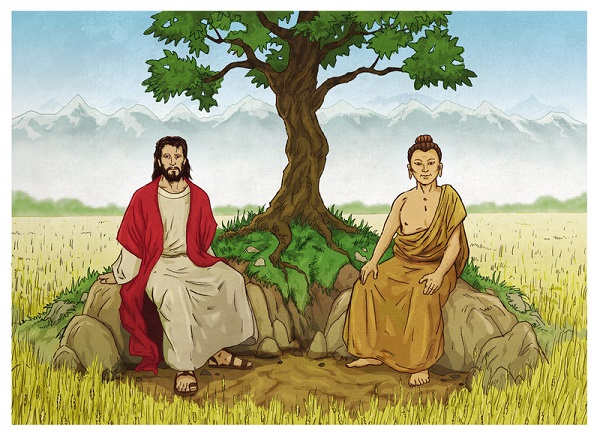
Nowadays in the Theosophical Society questions are asked, especially by young members, which are worth taking seriously. One of these questions, often posed, is this. Why do we dedicate so much time to the study of Theosophy? Why do we weigh ourselves down with all the ballast of theories about the origin of the cosmos from the very beginning up to the evolution of man with his various bodies and principles? And also: the teaching about the many incorporations or incarnations the human being must live through, and learning about the law of cause and effect. Why is all that necessary? Wouldn't we advance further by concentrating on the ethical aspects of theosophical teaching in order to better develop into good people? Isn't that the main thing? Why then all the studying? Continue reading
Poetry
Birches By Robert Frost
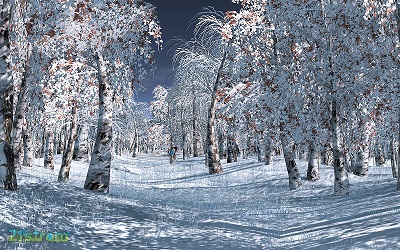
When I see birches bend to left and right
Across the lines of straighter darker trees,
I like to think some boy's been swinging them.
But swinging doesn't bend them down to stay
As ice-storms do. Often you must have seen them
Loaded with ice a sunny winter morning
After a rain. They click upon themselves
As the breeze rises, and turn many-colored
As the stir cracks and crazes their enamel...
Continue reading
Southern Cross and Parting by Frank Thomas Smith
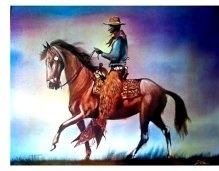
Gracefully
the gaucho gallops through
The
pampa's waving windswept grasses;
From
time to time he strokes his beard,
Black
as the eyes of his woman's lashes.
Orion
patiently makes its rounds,
Dripping
dust in the River Plate,
While
over the rancho, his destination,
The
Southern Cross guards the gate.
Words and Music
Waiting for the Miracle - Leonard Cohen

Baby, I've been waiting,
I've been waiting night and day.
I didn't see the time,
I waited half my life away.
There were lots of invitations
and I know you sent me some,
but I was waiting
for the miracle, for the miracle to come.
Continue reading and listen.
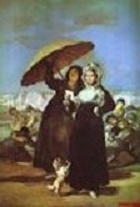
Letters to the Editor
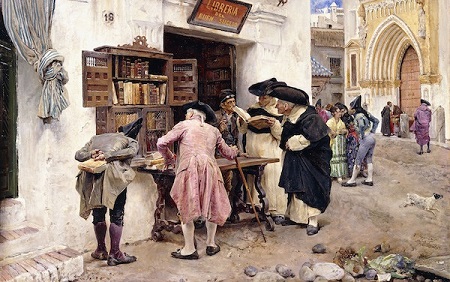
You can find us under the Southern Cross in the Traslasierra Valley, Province of Córdoba, Argentina. Visitors always welcome. Just follow the sign that reads: La Cruz del Sur.
Frank Thomas Smith, Editor
Contact
Authors' Guidelines
Previous Issues
so we can advise you when the next issue is ready.
You can search for authors or titles, entering names or keywords in the Google search box below.
